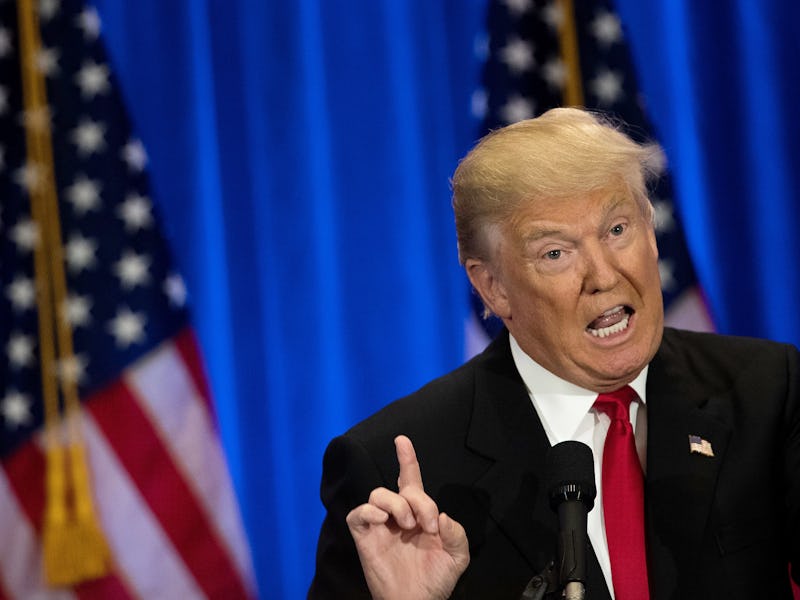A Donald Trump Administration Could Kill Net Neutrality
Say goodbye to a free internet.

Donald Trump’s choice to oversee the technological aspects of the White House’s transition from an Obama to a Trump administration — Jeffrey Eisenach — signals trouble for people who want to be able to access all websites and apps at equal speeds.
Trump has declared he wants to put a “moratorium” on new federal agency policies, which means the Federal Communications Commission’s decision in 2015 to support of net neutrality could be put on hold. Eisenach has long opposed efforts to ensure that internet service providers can’t charge some companies more to deliver their data to consumers. What does this mean for you? Well, if Trump and Eisenach have their way, Netflix might become a lot more expensive.
At its core, net neutrality treats all data equally, no matter its source. Facebook loads at the same rate as your bank’s website. In practice, this means that it prevents ISPs from creating different tiers of service that would charge people more if they want to watch television shows via Hulu, for example, or play a lot of online games. Net neutrality is the reason why you pay a set amount of money each month for internet access no matter what sites you visit. This setup works for consumers — it ensures that ISPs can’t gouge consumers for using popular services — but the industry would prefer to change things up.
Trump has his own problems with net neutrality. “Obama’s attack on the internet is another top down power grab,” he said in 2014. “Net neutrality is the Fairness Doctrine. Will target conservative media.” The Fairness Doctrine to which Trump was referring was an FCC policy that required broadcasters to devote time to matters of public interest and to present contrasting views during that time. The agency abandoned the doctrine in 1987.
In 2015 the FCC adopted the Open Internet rules. The regulations prevent ISPs from blocking access to legal sites, throttling traffic from those sites, or creating “fast lanes” that would require companies to pay extra to send data to consumers faster, among other things. These rules effectively guarantee that ISPs can’t slice up the internet to favor their own services — some operate video streaming sites that compete with Netflix, for example — and profit by charging more for some sites than others.
Eisenach has repeatedly spoken out against the concept of net neutrality. In 2014 he told a Senate committee that net neutrality is merely the tech industry trying to “enrich itself by using the power of the state to obtain free services” from ISPs. Then, in 2015, he wrote a paper for Facebook’s Internet.org in support of ISPs being allowed to subsidize access to some websites and not others.
All of which means that Eisenach’s position on Trump’s team endangers net neutrality. If the FCC’s rules are overturned you might not be able to access some of your favorite websites without having to pay extra for them; some ISPs might refuse to provide access to them at all. Instead of having access to the internet you would pay for access to an internet, with no guarantee that it would offer the same breadth of the current system. Net neutrality isn’t just a principle; it’s what has allowed the internet to become the cultural phenomenon it is today.
It should be said right here that Eisenach is also kind of a dick:
This isn’t the only worrisome policy move Trump has made. The president-elect has also been unclear about his views on digital privacy and reportedly chose a prominent climate change skeptic to lead the U.S. Environmental Protection Agency. His views on cybersecurity are also unclear at best and wrong-headed at worst.
Now he’s poised to put a net neutrality opponent in a position to influence the country’s internet regulations. Say goodbye to the internet as you know it.